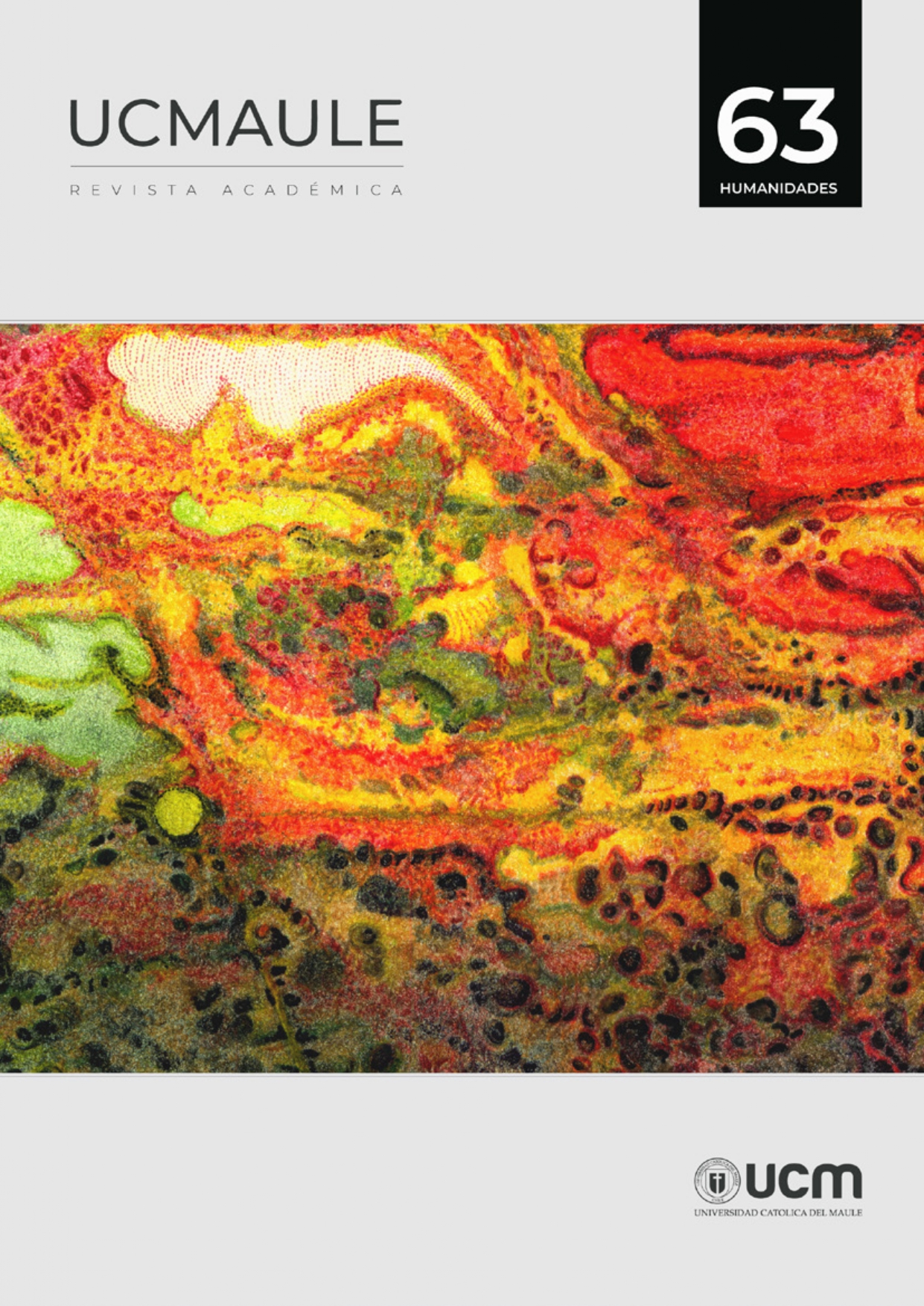Percepción por parte del alumnado de la docencia virtual en los estudios universitarios de traducción
Contenido principal del artículo
Resumen
Detalles del artículo
Aldossary, K. (2021). Online Distance Learning for Translation Subjects: Tertiary Level Instructors’ and Students’ perceptions in Saudi Arabia. Turkish Online Journal of Distance Education, 22(3), 95-109. https://doi.org/10.17718/tojde.961821
Al-Hussein, B. M. (2020). The Impact of E-Learning on Developing EFL Student’s Wri- ting Skillk A case study of the first year students in the College of Languages and Translation at King Saud University in Saudi Arabia 1441-2020 (Doctoral dissertation, Hassan Mergani M. Aidaroos). http://hdl.handle.net/123456789/1211
Al-Nofaie, H. (2020). Saudi University Students’ perceptions towards virtual education During Covid-19 PANDEMIC: A case study of language learning via Blackboard. Arab World English Journal (AWEJ), 11. https://dx.doi.org/10.24093/awej/vol11no3.1
Avsheniuk, N. et al. (2021). ESP students’ satisfaction with online learning during the Covid-19 pandemic in Ukraine. Arab World English Journal (AWEJ). Special Issue on Covid, 19. https://dx.doi.org/10.24093/awej/covid.17
Castaño Calle, R., Jenaro Río, C. y Flores Robaina, N. (2012). Análisis dafo de la utilidad de las plataformas de formación online para el entrenamiento en competen- cias de estudiantes universitarios. Edutec: Revista Electrónica de Tecnología Educativa, (42), a220. https://doi.org/10.21556/edutec.2012.42.346
Chen, C. (2021). Using scaffolding materials to facilitate autonomous online chinese as a foreign language learning: A study during the covid-19 pandemic. Sage Open, 11(3). https://doi.org/10.1177/21582440211040131
Conboy, A. F., Ugalde, E. G. & Reuber, A. (2017). Three Experiences in Video-Confe- rencing with Native Speakers of Spanish and French. NECTFL Review. Special Issue, (80), 11-43.
Corpas Pastor, G. y Varela Salinas, M.-J. (2003). Sobre la inclusión de elementos cu- rriculares relativos a entornos informáticos en las licenciaturas de traducción e interpretación. En Entornos informáticos de la traducción profesional: las memorias de traducción (pp. 301-328). Atrio.
Daniels, L. M. & Stupnisky, R. H. (2012). Not that different in theory: Discussing the control-value theory of emotions in online learning environments. The Internet and Higher Education, 15(3), 222-226. https://doi.org/10.1016/j.iheduc.2012.04.002
Dewaele, J. M. et al. (2019). The flowering of positive psychology in foreign language teaching and acquisition research. Frontiers in Psychology, 10, 2128. https://doi.org/10.3389/fpsyg.2019.02128
Doherty, S. & Kenny, D. (2014). The design and evaluation of a statistical machine translation syllabus for translation students. The Interpreter and Translator Trainer, 8(2), 295-315. https://doi.org/10.1080/1750399X.2014.937571
El Khairat, M. (2021). An Optimization of Language Learning in Writing through E-Learning: Encountering COVID-19 Pandemic. International Journal of Lan- guage Education, 5(1), 528-541. https://doi.org/10.26858/ijole.v5i1.15375
Fernández Navas, M. (2015). Internet, organización en red y educa@ción. Estudio de un caso de buenas prácticas en enseñanza superior. Tesis doctoral. Uni- versidad de Málaga.
Gacs, A., Goertler, S. & Spasova, S. (2020): Planned online language education ver- sus crisis-prompted online language teaching: Lessons for the future. Foreign Language Annals, 53, 381-391. https://doi.org/:10.1111/flan.12460
García Herrero, M. M. (2013). Utilización de estrategias y selección de estilos por es- tudiantes universitarios, ya titulados, en el aprendizaje de la lengua extranjera. Educar, 49(1), 127-151. https://doi.org/10.5565/rev/educar.14
González-Montesino, R. H. (2020). El reto de enseñar y aprender interpretación sig- nada en tiempos de coronavirus. Revista de Estilos de Aprendizaje, 13(especial), 17-32. https://doi.org/10.55777/rea.v13iEspecial.2237
Gregersen, T. (2020). Dynamic properties of language anxiety. Studies in Sec- ond Language Learning and Teaching, 10(1), 67-87. https://doi.org/10.14746/ssllt.2020.10.1.4
Holubnycha, L. & Baibekova, L. (2020). Modern Technologies for University Students’ Language Learning in Pandemic. Postmodern Openings/Deschideri Postmo- derne, 11(2), 59-65. https://doi.org/10.18662/po/11.2/158
Kenny, D. (2019). Technology and translator training. En The Routledge Handbook of Translation and Technology (pp. 498-515). Routledge.
Klimova, B. (2021). An insight into online foreign language learning and teaching in the era of COVID-19 pandemic. Procedia Computer Science, 192, 1787-1794. https://doi.org/10.1016/j.procs.2021.08.183
Lin, C. H. & Warschauer, M. (2015). Online foreign language education: What are the proficiency outcomes? The Modern Language Journal, 99(2), 394-397. https://doi.org/10.1111/modl.12234_1
Linnenbrink-Garcia, L. & Pekrun, R. (2011). Students’ emotions and academic engage- ment: Introduction to the special issue. Contemporary Educational Psychology, 36(1), 1-3. https://doi.org/10.1016/j.cedpsych.2010.11.004.
Maican, M. A. & Cocoradă, E. (2021). Online foreign language learning in higher ed- ucation and its correlates during the COVID-19 pandemic. Sustainability, 13(2), 781. https://doi.org/10.3390/su13020781
Maidul, I., Kim, D. -A. & Kwon, M. (2020). A Comparison of Two Forms of Instruction: Pre-Recorded Video Lectures vs. Live ZOOM Lectures for Education in the Business Management Field. Sustainability, 12(19), 8149. https://doi.org/10.3390/su12198149
Pekrun, R., Elliot, A. J. & Maier, M. A. (2009). Achievement goals and achievement emotions: Testing a model of their joint relations with academic performance. Journal of Educational Psychology, 101(1), 115-135. https://doi.org/10.1037/a0013383.
Postigo Fuentes, A. Y. (2021). Aprendizaje de una lengua extranjera en una liga de e-sports amateur. Tesis doctoral. Universidad de Málaga.
Rhema, A. & Miliszewska, I. (2014). Analysis of student attitudes towards e-learning: The case of engineering students in Libya. Issues in Informing Science and Information Technology, 11(1), 169-190. https://doi.org/10.28945/1987
Robin, E. (2021). Virtual classroom in the teaching of translation. In Seresi, M., Eszenyi, R. & Robin, E. (eds.), Distance education in translator and interpreter training. Methodological lessons during the Covid-19 pandemic (pp. 17-42). Department of Translation and Interpreting, ELTE.
Torrecilla, F. J. M., Martínez-Garrido, C. y Hernández-Castilla, R. (2011). Decálogo para una enseñanza eficaz. REICE: Revista Iberoamericana sobre Calidad, Eficacia y Cambio en Educación, 9(1), 6-27. https://doi.org/10.15366/reice
Witmer, B. G. & Singer, M. J. (1998). Measuring presence in virtual environ- ments: A presence questionnaire. Presence, 7(3), 225-240. https://doi.org/10.1162/105474698565686

Esta obra está bajo una licencia de Creative Commons Reconocimiento-NoComercial-CompartirIgual 4.0 Internacional

